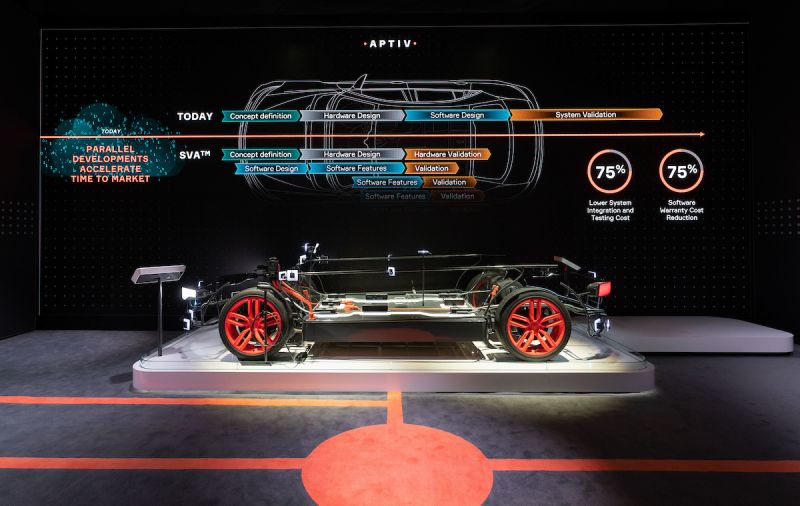In a deal underscoring the growing importance of software in vehicles, Aptiv will spend $4.3 billion to acquire software company Wind River from a hedge fund, TPG Capital of Fort Worth, TX.
“The automotive industry is experiencing its biggest transformation in more than a century, as software-defined connected vehicles increasingly become essential parts of the broader smart ecosystem,” said Kevin Clark, president and CEO of Aptiv.
“With synergistic technologies from Aptiv and Wind River and decades of experience delivering safety-critical systems, we will accelerate this journey into a software-defined future of the automotive industry,” Clark said. (photo below left). “Furthermore, we are committed to further strengthening Wind River’s competitive position in the multiple industries it serves.”
Aptiv will finance the $4.3 billion transaction through a combination of cash and debt. The acquisition is expected to close in mid-2022 and is subject to customary conditions, including regulatory approvals.
“Software is expensive,” Clark says, adding that demand for vehicle software is expected to grow rapidly by the middle of the decade. “We are very comfortable with the evaluation.”
The CEO notes that access to Wind River’s software stack will allow Aptiv to provide over-the-air updates and revenue-boosting subscription services that automakers expect to provide in the future.
Aptiv has previously partnered with Wind River on automotive projects, setting the stage for the deal.
“Wind River has established itself as a global leader in cloud-native intelligent edge software that delivers the highest levels of security, safety, reliability and performance,” said Kevin Dallas, president and CEO of Wind River.
The acquisition of Wind River follows Aptiv’s exhibit at CES 2022 in Las Vegas in which it highlighted its expanding software capabilities. The CES display, which featured a rolling chassis with advanced security, infotainment, self-driving and user experiences, is an example of the capability Aptiv can offer its customers, executives say.
“For years, the automotive industry has been moving towards the software-defined vehicle, in which more features and functions are primarily enabled through software that can be updated quickly and easily. Tens of millions of lines of code power today’s vehicles – and yet the industry has only scratched the surface,” notes Aptiv in a white paper prepared for CES.
“Massive transformations in connectivity, autonomy, and user experience are yet to come, and each innovation will require complex software to execute.”
Wind River software enables the development, deployment, operation and maintenance of critical intelligent systems. The company’s software portfolio spans the aerospace and defense, telecommunications, industrial and automotive markets and is based on Wind River Studio, a comprehensive software platform of intelligent systems native to the cloud that enables complete product lifecycle management for edge-to-cloud use cases.
In addition to the great software-defined mobility opportunity, the merger will enable Aptiv to diversify into high-value industries through Wind River’s intelligent systems software platform. The combination will enable multiple innovations and end-use applications. According to Aptiv, Wind River will continue to operate as a standalone business within Aptiv under the Advanced Safety & User Experience segment.
For Aptiv, the merger with Wind River represents another step for a company spun off from what was once part of General Motors’ component business.
GM created what would become Aptiv as part of the Delphi spin-off in the late 1990s.
Delphi underwent a drastic reorganization and eventually filed for bankruptcy before the 2008 financial crisis.
After emerging from bankruptcy, Delphi split into two companies in 2018, with Aptiv retaining the intellectual property and technical capability to build infotainment and self-driving systems. Delphi Technologies retained the motor-focused technology, including the inverters needed to run battery electric vehicles.
Delphi Technologies merged with BorgWarner in 2020, ending commercial use of the Delphi name although it endures in litigation brought against the company by retirees.

Aptiv intelligent vehicle architecture showcased at CES.




